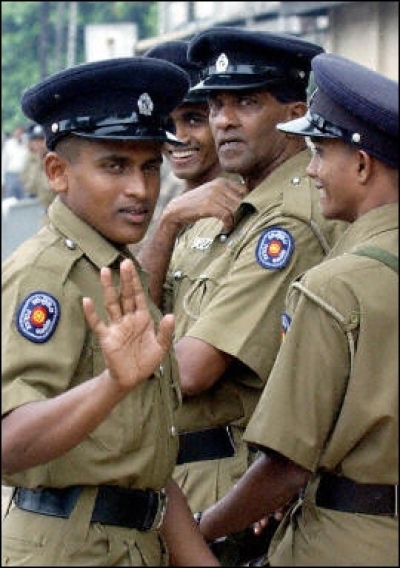Police Step up Security After Attacks on Christian Sites
COLOMBO - Security tightened in Sri Lanka after targeted attacks on two Christian sites, December 28. The attacks followed the cremation of a controversial monk and the consequent protests by suspecting

Sri Lankan police said they had stepped up security at churches after two Christian sites were attacked amid mounting inter-religious tensions on the Buddhist-majority island.
Police Deputy Inspector-General K. P. Pathirana said mobile patrols had been intensified in vulnerable areas following Sunday's attack on a Jehovah's Witness hall and another church about 60 kilometres (37 miles) east of Colombo.
"The situation is well under control after yesterday's unfortunate incidents," Pathirana said on Monday. "Investigations are underway."
The attackers damaged furniture and window panes after Sunday morning mass, a local police spokesman said, adding that there were no casualties.
The latest violence came four days after 15 people were wounded during the cremation in Colombo of Gangodavila Soma, a controversial Buddhist monk opposed to religious conversions.
The monk's death after he suffered a aattack this month in Russia fuelled conspiracy theories despite medical reports that he died of natural causes.
Dozens of Buddhist monks launched a sit down protest on Monday outside the Buddhist Affairs ministry, demanding laws to ban what they call unethical conversions.
The protesting monks said the funeral of Soma had helped to highlight the issue of conversions, which they claim Christian groups carry out by offering rural Sri Lankans cash and other material rewards.
Sri Lanka's Hindu Affairs Minister, T. Maheswaran, announced during a visit to neighbouring India two days ago that the island would introduce a law to punish people who used "inducements" for conversions.
Christians make up 7.5 percent of the population of Sri Lanka, where more than 60,000 people have died in a 30-year armed campaign by separatist Tamils, who are predominantly Hindu.
The Sri Lanka constitution grants the foremost place to Buddhism, which is practised by nearly 70 percent of the island's 18.66 million people. Hindus make up about 15 percent and Muslims about 7.5 percent.




























